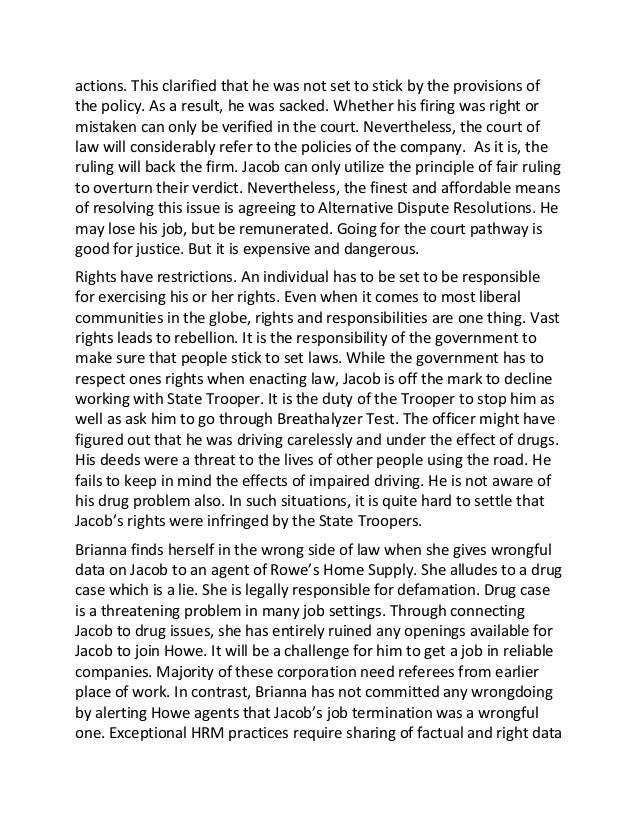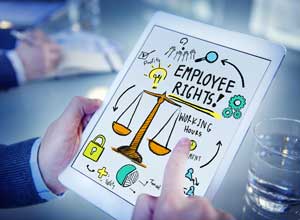Employee Rights And Responsibilities Examples
Rights and Responsibilities Employee Rights and Responsibilities. As a worker, you have a legal right to: A safe and healthful workplace; Any information your employer has about any exposure you may have had to hazards such as toxic chemicals or noise. Consumer rights. Information and advice for buyers of goods or services. Information for businesses about their rights and responsibilities under consumer laws in Western Australia. Licences and registrations. Information on applications, requirements, training and registrations for regulated industries. Charities and associations.
Related Articles
Employee Polygraph Protection Act
- 1 What Are the Rights of an Employee in the Workplace?
- 2 Workplace Rights & Obligations
- 3 Employee Rights & Protections for Whistleblowers
- 4 Temporary Workers Rights
Employees Rights And Responsibilities
When you hire employees you have a number of responsibilities to manage, including setting work schedules, doing payroll and ensuring that workers complete duties correctly. You must also know the rights and responsibilities of your employees when they're in your office. Some of the laws and regulations for workers vary by state, but there are a few key concepts that you should be aware of as a responsible and thorough small business owner.
Privacy Rights
The general rule of thumb for employees regarding privacy rights is that because the equipment, including computers and phones, as well as software and computer systems belong to the employer, he has the right to access information disseminated using these tools. For instance, employers can monitor calls made by workers if they wish in most cases. This also applies to company-owned emails, cell phone messages and voicemails. However, if the employee is using his own personal devices and possessions he has the right to privacy. Also, federal law states that when the employer determines that a phone call is of a personal nature, recording must stop.
Breaks
Some states have specific rules requiring employers to give employees break time for eating and resting. This condition is not covered by federal law. In states that do require breaks, it's commonly for employees that work five or more hours and for about a half an hour. Also, If the state law does require breaks for employees, it may or may not have to be paid time. Texas does not have a requirement for meal or rest breaks as of 2010. Smoke breaks aren't usually required by law—that is a decision made by each individual employer. Rules regarding meal and rest breaks for minors may be even stricter depending on the state.
Safety

Employees have rights and responsibilities when it comes to safety. Workers have the right to a safe hazard-free atmosphere at work and employers must give workers access to information regarding safety at the workplace. Employees also have a responsibility to contribute to workplace safety and health, according to the federal Occupational Safety and Health Act of 1970.
Respect for And from Others
In addition to safety, employees also have rights and responsibilities concerning how they interact with co-workers and managers. Each employee has the right to work in an atmosphere where he doesn't experience discrimination or harassment. In turn, the employee has the responsibility to respect his co-workers.
Right to Fair Treatment by Employer
'Whistleblower' rights gives each employee protection from retaliation if the worker reports the company for violations. Workers also have the right to receive payment for the work completed and hours spent on duty at the company as agreed upon hiring.
References (5)
About the Author
Louise Balle has been writing Web articles since 2004, covering everything from business promotion to topics on beauty. Her work can be found on various websites. She has a small-business background and experience as a layout and graphics designer for Web and book projects.
Cite this ArticleChoose Citation Style

